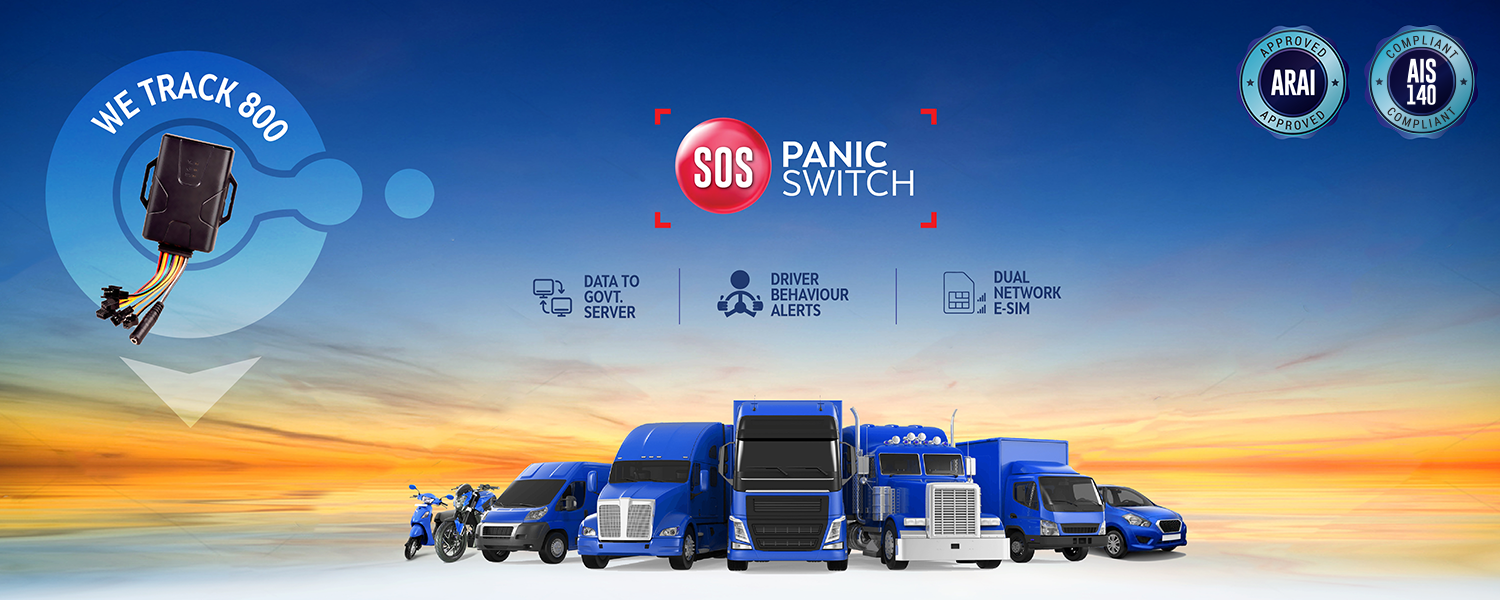- support@ctracklive.com
- Helpline :9999443732
- GPS Login

As the best GPS Tracking Company in India, Letstrack has launched a market leading AIS140 approved GPS tracking device in India. Covering all major cities of India, our award winning Government approved GPS trackers and powerful app and web platform provide a solution for all walks of life from school buses to commercial vehicles to independent taxi drivers.
In order to increase and ensure the efficiency of the transport system the government of India has designed an Intelligent Transport System (ITS) under the Automotive Industry Standard-140 (AIS 140). The ITS is globally proven to optimize the utilization of existing transport infrastructure to the best of its capacity. This helps in improving the transportation system in terms of efficiency, quality, comfort and safety. The vehicles on the road are increasing daily and therefore there is a need of government guidelines which specify the emergency and safety standards that need to be implied in all kind of public transport systems. The most reliable use and strict compliance of AIS-140 guidelines can help ease the congestion on the roads, improve traffic management and reduce the environmental impact. This will benefit the commercial users as well as the public.
Allow the location to be pinpointed in real time or periodically
Water-resistant to ensure stable operation in tough environment
Memorize a large amount of gps data for history review
Get instant alert when your car's door is open unexpectedly
In case of emergency,press the SOS button to trigger an urgent call
Instant alert for vibration, overspeed, power off, geo-fence
Monitor and control external application via inputs/outputs
Any organization that deals with the transportation of goods from one part of the country to another is familiar with fleet management and the problems it brings. Fleet management includes taking care of vehicles and carriers transporting goods from one point to another. For fleet management, companies want to ensure that they do not suffer costly breakdowns that result in delays in product delivery and cause financial losses. To avoid such situations, CTOs and CIOs look for smart solutions to help them maintain fleets better. The IoT technology is a smart solution that helps companies in numerous ways, and fleet management might just be another aspect of businesses affected by the transformational wave of IoT. Even though IoT has several applications for transforming businesses, fleet management with IoT is a novel one.

AIS 140 is part of the Intelligent Transportation Systems requirements for public transport vehicles.
The start of the new fiscal year will see a new regulation becoming mandatory for the vehicle industry. AIS 140, applicable from April 1, 2018, mandates a vehicle tracking device and one or more emergency button(s) in all existing and new public service vehicles.
The AIS 140 or the Intelligent Transportation System (ITS) is a set of requirements that the government has mandated to be put into place in all public transportation systems namely buses and taxis among others. The requirements have put an onus on not just OEMs but also aftermarket players to bring in a system that will improve safety critical parts in the Indian mobility.
According to the Automotive Research Association of India (ARAI), ITS is a globally proven system that optimises the utilisation of existing transport infrastructure and transportation systems along with efficiency, quality, comfort and safety.
For a device to be AIS 140 certified, it needs to adhere and meet the following standards:
Furthermore in terms of an emergency/panic button, passengers or in-vehicle crew present in the vehicle should be able to make an emergency request by pressing the emergency button provided that can only be deactivated by authorised government server.
In case there is no reception (GSM and GPRS), the alert will be stored in the device and as soon as the network becomes available the device will need to be able to send the information on high priority to the configured addresses.
These are the major requirements apart from the physical testing conducted by ARAI for certifying the devices to the conformity standards.